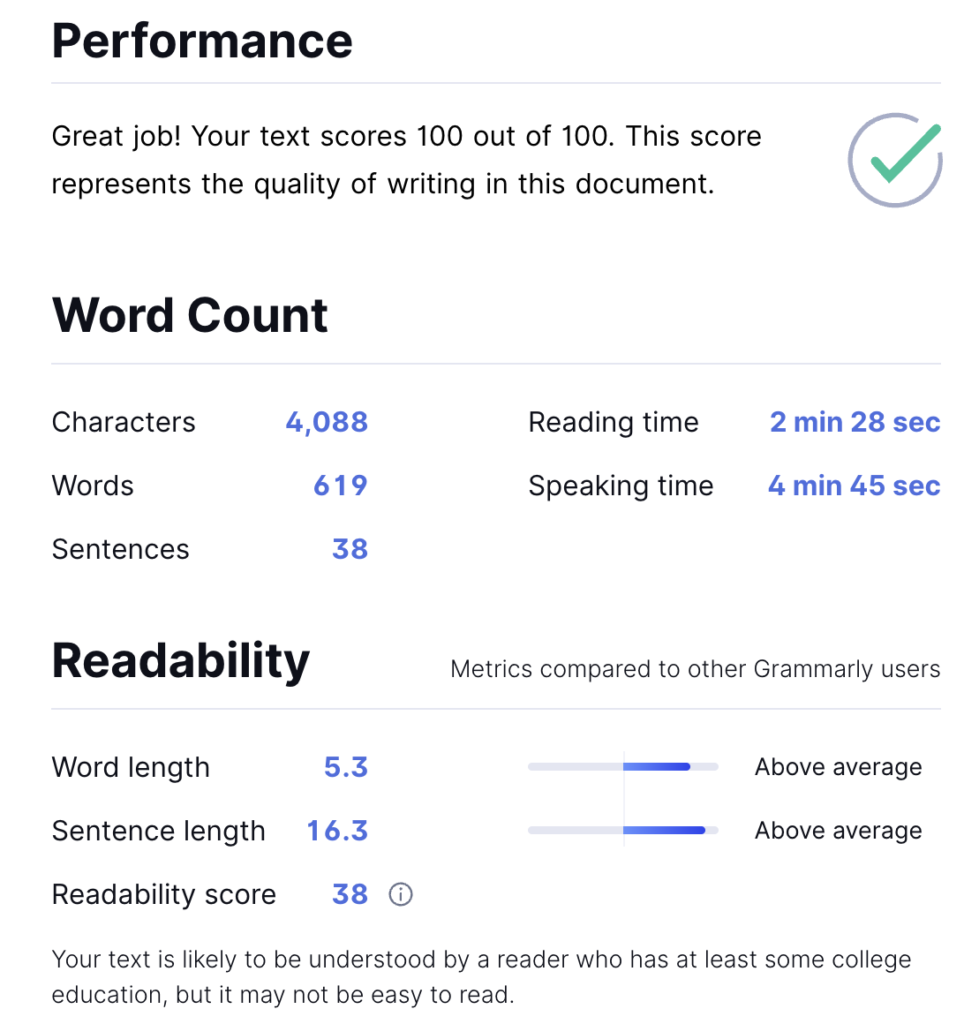Many businesses don’t target keywords with zero search volume keywords, thinking there’s no point. However, there are benefits to going after these types of keywords. You can open up your business to new opportunities by targeting these keywords. Here’s why you should target these keywords and how to do it.

Targeting zero search volume keywords can be highly beneficial for your blog. By targeting these keywords, you can attract a new audience to your blog that may have never found you otherwise. Not only will this help to grow your blog’s reach, but it can also lead to more engaged readers and followers.
Zero search volume keywords are those keywords or key phrases that have zero monthly searches in Google Keyword Planner. Despite having no searches, targeting these keywords can benefit your blog for various reasons. For one, even though there may not be any current searches for these terms, that doesn’t mean there never will be. Suppose you’re the first to target a particular zero search volume keyword. In that case, you could see a surge in traffic as soon as that keyword starts gaining popularity.

As a blogger, you’re always looking for new ways to grow your audience and expand your reach. One way to do this is by targeting zero search volume keywords. What are zero search volume keywords? They are simply the long-tail keywords that no one is searching for… yet. But targeting these types of keyword phrases can help you get found by those searching for them. Why target zero search volume keywords? Because they can be an untapped source of traffic for your blog.
Zero search volume keywords are those searching for on Google. And while they may not get a lot of traffic, targeting them can still be beneficial. Why? Because it can lead to more engaged readers and followers. You create content for a niche audience when you target zero search volume keywords. And since this audience is smaller, they’re more likely to engage with your content. They may even share it with others interested in the same thing.

What Are Zero Search Volume Keywords? And Why You Should Target Them
Zero search volume keywords are hyper-focused long tail queries for which tools cannot provide data on search history. Or have low search volume.
These queries are typically longer than keywords with high search volumes and are extremely specific.
The keyword “link building” has hundreds of thousands of searches. To find a low-volume keyword related to this topic, you might search for “link building blogs.”
This query is much more specific, has low search volume, and tools will not be able to provide data on this term’s search history. The keyword “link building for small business in London” has very few searches. The keyword “link building strategy” has only hundreds of inquiries. The keyword “link building services for small businesses” have a couple of hundred searches. The keyword “how to get quality links for SEO” has a low search volume.
What Is the Difference Between Long Tail and Zero Search Volume Keywords?
In this way, zero-search volume keywords are like long-tail search queries. They usually include at least four words, which the user can phrase in many different ways.
- While the volume for zero-search queries is practically non-existent, their number is enormous.
- Combining all of these queries result in considerable search volume.
- Since they’re not based on general queries, they don’t contribute to your overall ranking.
Search Volume Keywords: How do they Work?
The secret behind zero-search keywords is the Personalized Search algorithm. This algorithm creates personalized search results. It uses various signals (most of which the user is unaware of) to customize results based on their specific search intent.

Aside from the usual suspects like location, search history, and social media activity, Google also uses information. This can be useful to know if you are targeting a particular niche. If you run a website related to beauty, you might want to target the keyword “how to do your makeup.” By doing so, you can attract a lot of non-competitive traffic.
You can use Google AdWords and other tools to find long-tail keywords relevant to your niche. These questions are more specific and more targeted. The user is much more likely to see what they’re looking for, which increases the click-through rate. You get the idea!
And this is precisely why this can be an excellent method of identifying new keyword ideas.

How Do I Identify The Zero Search Volume Keywords For My Site?
If you want to find low-competition keywords to target, you’ll need to use a keyword research tool. There are many different tools you can use to do this. These include:
I love Google Trends because it’s free and easy to use! To use Google Trends, enter your niche in the search bar.
You can be as specific or as broad as you like for this. Let’s break this down a little further. When users are looking for answers to their questions, they are likely to use what they know, which is the actual question. While this can also be an example of a long tail query, it has zero search volume if the question is not popular enough to rank.

For example, questions with zero search volume, when you search for popular questions on Google, the top results tend to be from brands. For example, a search for the question “how high is the Eiffel tower” gives us results from Wikipedia, Travel and Leisure, and the Tourism office of Paris.
It’s no surprise we see results from notable brands when you consider that most people already know the answer. And so, this is one case of a popular question with zero search volume. It’s a combination of lots of little pieces of search volume that create significant value.
We do competitor research in search marketing to understand your potential customers’ questions about a target negative keyword. We determine which of these questions have the highest search volume and generate the most traffic for your competitors’ sites. We then craft our negative keyword list. (which you can also use in your Google Ads campaigns) so that you’re targeting the right people with your advertising.
How do you know you’re targeting the right people?
The only way to know you’re targeting the right people is to measure your results. This is usually done using analytics software like Google Analytics and Google’s Search Console. If you don’t already have these tools installed on your site, you should get them – they’re free!

Can You Trust Keyword Tool Planners?
You can do a few things to ensure you’re not missing out on potential keywords. Check multiple keyword planning tools to understand the range of possible search volumes. Use keywords like “long tail” or “related” to find more keywords with lower search volumes. Think about the intent behind a search and how that might differ from other inquiries. For example, someone looking to buy a product is likely to use different keywords than someone just looking for information.
In general, keyword planning tools are a great way to get a sense of a keyword’s potential search volume. However, you should always take the results with a grain of salt and use other methods to confirm the results. There are a few things:

We can use the keyword planner as a “starting point.”
We can use other keyword research tools in conjunction with the keyword planner to get a more accurate picture.
We can use our common sense and business acumen to decide which keywords are worth targeting. There are a couple of things:
First, look at the search results for your given keyword in Google. If there are no results, then the keyword is likely not worth targeting.
Second, use a keyword tool like Google Keyword Planner to get an idea of the average monthly search volume for a given keyword. However, take this number with a grain of salt – it is an estimate, after all.
Third, use your best judgment. If a keyword seems to be a good fit for your business, then go for it! There are a few things you can do to get more accurate keyword data:
Fourth, Use multiple keyword tools and compare the results. Try different keyword match types and compare the results.
Fifth, Use keyword tools that offer search volume data from various sources. Try other keyword tools and compare the results.
The answer is to use various keyword tools to get a more accurate representation of keyword demand.
Use these tools to discover new keywords, but don’t forget to do further research to know if those keywords will help you reach your SEO goals.
Benefits Of Targeting Zero Search Volume Keywords More Conversions
Even if a keyword has a low search volume, if it is relevant to your business, targeting that keyword can lead to conversions. For example, if you are an eCommerce store, you want to target keywords with commercial intent. Even if those keywords have a low search volume, they are still relevant to what you are selling and can result in a purchase.

Long-Term Rankings
SEO is a long-term game. Just because a keyword has a low search volume now does not mean it will not have any search volume in the future. In addition, you can use these low-search volume keywords as “springboards” to rank for related keywords with higher search volume.

Think Quality Over Quantity
When you target zero search volume keywords, you are not worried about the volume of traffic that keyword brings. You are more focused on the quality of traffic.
Highlighting Gaps in Competitor Strategy
When you target zero search volume keywords and rank for them, it points out a gap in your competitor’s SEO strategy. If you can rank for a keyword with no monthly searches, your competitors should also be able to.
This is a sign that they have either not targeted these keywords or have not optimized their site correctly. You can use this to your advantage by targeting these keywords and improving your chances of outranking your competitors.
Improved Click-Through Rate
Since less competition means a higher chance of ranking, you will likely see an improved click-through rate (CTR) for these keywords. Since you are one of the few (or perhaps the only) results on the first page, users are likelier to click on your result. A higher CTR can also lead to a better quality score, which can help lower your cost per click (CPC).

Better Quality Score
Since you are targeting a keyword with little to no competition, it will be easier to rank for that keyword. And, as you know, a better ranking will lead to a better Quality Score. A Quality Score is determined by several factors, including click-through rate (CTR) and relevance of each keyword to its ad group. The better your Quality Score is, the lower your CPC (cost-per-click) will be.
Increased ROI
You can potentially increase your return on investment (ROI) by targeting these low-volume keywords. Since you will be paying less per click, you will be able to get more clicks for your money. In addition, you will be able to get these clicks with less competition so you will have a higher chance of a conversion.

Improved Brand Awareness
Even if a keyword has zero search volume, it can still be a valuable keyword to target.
Increased Conversions
You are targeting a new group of potential buyers by targeting zero-volume keywords. It is essential to understand your buyer personas. Just because you do not think that anyone is searching for a specific keyword does not mean that your potential customers are not searching for that keyword. Knowing your audience and how they are searching for your products or services is essential.
New Content Ideas
When you start to target zero-volume keywords, you open the door for new content ideas. You can now write about topics that you may not have considered before. And you can target these new keywords with your content to improve your SEO.
Improved Rankings
Improved rankings are not just about the volume of keywords that you target. It is also about the quality of the keywords that you target. Suppose you can target zero-volume keywords and improve your rankings for those keywords. In that case, you will see an overall improvement in your rankings.
More Traffic
Even if a keyword has low search volume, it may still attract buyers who are actively searching for what you have to offer. Yes, there may be fewer of them than buyers targeting other, more popular keywords, but they are still valuable leads.
Long-Term Success
Yes, zero search volume keywords may not help you get traffic to your site today or tomorrow, but these terms can be valuable if you are in it for the long haul. Unlike other, more popular keywords that will continue to be competitive, you can slowly but surely build your way up to the top for zero search volume keywords.

Generate Traffic
Suppose your business ranks well for high-volume keywords. In that case, you may want to pivot your SEO strategy to target zero-volume keywords. Think of all the customers you haven’t reached yet! 15% of queries in Google have never been asked. That means you might lose up to 15% of your potential traffic!
Additionally, suppose you’re targeting a keyword with zero or minimal search volume. In that case, users who click through to your page will likely be coming from long-tail queries that other businesses don’t target. It allows you to earn more organic clicks and leads from long-tail queries than would be possible if you were targeting higher volumes of searches. There are a few strategies you can employ to generate traffic from long-tail queries:
Content marketing is perhaps the best long-term, sustainable way to add volume to your website. Create blog posts covering topics your audience might search for on Google. The goal is typically to write evergreen blog posts and cover topics that will always be relevant to your business.
You can also target specific long-tail queries by creating landing pages for them, taking this strategy to an extreme. You can even target keywords that don’t have enough monthly searches to reach the top results on Google. And use Jaxxy’s Keyword Tool for more granular tracking.
Targeting these keywords also helps you stay ahead of the curve. By targeting keywords with less competition, you can gain an advantage early on, and your rankings will have a better chance of staying at the top of Google.
First, look for high-volume keywords you can’t rank for, either because of competition or because the keyword is too broad. If those keywords are closely related to your business, continue reading. If not, skip to the next step; otherwise, you’ll be wasting your time. To find keywords that you can’t rank for, you can use Jaxxy’s Keyword Planner.

Advertising
Although this guide focuses on SEO, we can’t ignore advertising as a traffic source. I don’t usually recommend PPC advertising for new businesses. Still, suppose you’re in a niche with low traffic, to begin with. In that case, you might be able to drive significant traffic and sales from advertising.
First, construct a list of keywords for your business that is highly relevant but has substantial search volume. For example, let’s say you do a search on Google for the keywords “web design.”
You see a website called Web Design Armory. Now, this website is targeting a high-volume keyword. They might get their leads from people searching for “web design,” “web design software,” etc. But there’s another way they can get leads. They can target long-tail keywords!
Search Volume Keywords for SEO
The first step to finding the right keywords is knowing what people are searching for. So, you must conduct keyword research to determine what keywords people use when searching for your website, products, or services. Look for precise, long-tail keywords. These keywords are less competitive and have less search volume but can easily dominate with the right content.
Here are some ways to find these long-tail keywords:
Use the SERP’s ” people also ask ” section, which shows related queries. Use the SERP’s ” related searches ” section, which shows the keywords people used to find your site.
Use Free Keyword Research Tools like Jaxxy’s Keyword Tool to find popular, high-volume keywords.
Use Keyword Research Tools like Jaxxy to find long-tail keywords.
You can use these keywords in your post title, body, and tags to increase post discoverability.
Use the SERP’s ” related searches ” section to see what other relevant queries people perform when looking for your website, product, or service.
Use Google’s Keyword Planner for related keywords and other keyword ideas.
Use Jaaxy to generate data on keywords.
You can also find keywords using Facebook’s Power Editor, which gives you some of the most relevant related and similar keywords.
- Use Google’s Related Searches feature, which provides related keyword ideas as you type.
- Use Google’s Keyword Planner and check the “Ad group ideas” to get a broader keyword list.
- Use Google’s Keyword Planner to generate a list of related keywords.
So what? Keywords help you understand the user intent, enabling you to craft better content for those potential customers. Don’t just target one or two keywords. Look at the related searches for your top keywords.
Use Google Suggest.
Use the Google Keyword Planner.
Find out which keywords your competitors are ranking for.
Optimize your rankings by targeting these keywords and phrases.
For example, most people would search Google to buy a pair of shoes. So, they would use the keyword “shoes. Go to Google’s Keyword Planner, click search for new keyword and ad group ideas, and plug in your main keyword. Then, select ” Get search volume ” and ” Get related keywords. ”
Use Google Autocomplete, a built-in feature that shows what people search for on Google.
Do keyword research with the help of a keyword tool.
Understanding Relevancy
When you search for something, you’re looking for relevance. So, you want to see what’s most relevant to your query. But when you’re targeting zero search volume keywords, you don’t have any data. How do you know if they’re appropriate? That’s where your own experience comes in.
Understanding the target phrase will help you know its use and what people are searching for – which can help you determine whether it’s relevant to your business. Look for your keywords in forum discussions, social media, and the SERPs. If someone has already asked about your topic, chances are they’re interested in it.
The advantage of looking for existing queries is that you get both search volume, snippets, and click-through-rate data. These factors all weigh into your relevance score. So, you can use them to make an educated guess about a keyword’s relevance. And if it is relevant, you just found free traffic.
Don’t rely on long tail keywords until you’ve exhausted short tail keywords, and if you can’t find relevant short tail keywords, target zero search volume head terms first.
This will also help you figure out which social media to use. Tweets, Facebook, and blog posts are the most effective for zero search volume head terms. At the same time, forum topics and SERP discussions are better for zero search volume long tail keywords. If you want to find the others, try looking at your competition’s landing pages. If they’re ranking, they’re probably using relevant keywords. Once you’ve identified some relevant phrases and how they’re used, start looking at search volumes.

Search Volumes
The volume is the number of searches per month (in the United States). Understanding intent will help you figure out whether the phrase is relevant. You can use a tool like the Google Keyword Planner or ask Google how searchers use the keyword. You can learn more about that here.
How do you find zero-volume keywords?
Google Keyword Planner will help you find a few as well. As you type in keywords, Google will show you a column of related searches. Click around the SERPs to see who’s on top. What do they do well? Are there associated topics in the right column?
If a site is ranking for a topic you’re interested in, you gain insight into whether it’s worth targeting or not. Consider how popular your keywords are. If Google Trends shows a steady decline in searches for a term, it’s probably irrelevant.
Find Related Long Tail Keywords
Long tail keywords are longer search queries. They are phrases people type into the search bar instead of just words they might use. These search queries usually have more instances of the keyword, and they have a higher conversion rate. However, it is harder to rank for long tail keywords because the competition is higher.
If you see any terms that seem helpful to your article, click on them and read the results. See what topics Google thinks are related to your primary keyword and put them on a list.
+ Sign: When you see a + sign next to a keyword, that means Google believes that the term is more relevant to your search than the keyword before. This is especially important if there’s only one keyword between “keyword” and the + sign. Finding synonyms for your keyword can lead to other ideas.
For example, if you’re trying to rank for “fluffy kitten,” you might also try “cute kitten” or “adorable kitten.” If you brainstorm all these keywords, you’ll find that some lead nowhere, but others can be used in conjunction with each other in an article or on a blog.
Another idea for finding related keywords is to look at your website’s existing content. You can also use Google’s Related Searches tool to see terms people have searched for in the past. This is a good way of determining whether a keyword is still prevalent. It would help if you also looked at the search volume of the related terms and their SEO competition.
This can help you determine how competitive your SERP will be and how much effort you’ll have to put into reaching the first page. These are keywords that your target audience is searching for. When brainstorming, include people you know and consider their hobbies, likes, dislikes, gossip, concerns, and interests.
Topical Keywords
Find out the topics your target audience cares about. For example, suppose you’re a marketing consultant. In that case, you want to talk about social media marketing, lead generation tactics, content marketing, and other topics on your potential client’s minds.

Capitalize On Purchasing Keywords
By seeing what people are searching for, you can easily find the most popular keywords and increase the quantity of traffic to your website.
Search Engine Optimization Techniques to Boost Your Business
SEO has been a hot topic for many years, with marketers (and non-marketers) wondering how to use it to benefit their businesses. Look for keywords that your company would want to target with your content.
Using Keyword Research To Improve Search Rankings
You can use the most popular keywords to create content and increase your search rankings for your website. You’ll want to use high-quality content that addresses the needs and problems of the people looking for your products or services online. If you can meet their needs with your content, you’ll have a great chance of improving your search rankings. You can also use tools such as Google AdWords to research keywords related to your business.
Intermediate Keyword Research
You can use the Google Keyword Planner for companies that are a bit more advanced. This tool allows you to do keyword research by looking at various things. You can select which country you want to target and which language, and even restrict your search to particular categories or pages (shopping, videos, news, etc.).You can use paid keyword. And optimize your website to ensure your ad appears in the search results.
When surfing keywords, customers look for a product or service like yours.
Click here to check out a free program we recommend called Jaxxy. This program is designed to help you determine which keywords are most profitable for your business. This program is designed to help you decide which keywords are best for your business.
It is pretty simple when you are ready to purchase keywords or a keyword phrase. You can also use advanced search operators to find information about people’s searches on Google. These searches can tell you everything you need to know.

Google Advanced Search Operators Bing Advanced Search Operators Including Keywords In Your Content
Now that you have studied your competitor’s keywords, visit your website and see what is already on your website and blog. Do you already have some of these keywords in the content on your website or blog?
Select Relevant Keywords That Deliver
In addition to getting caught up in super competitive keywords, many marketers make the mistake of choosing keyword phrases that are too generic. It’s terrible to target terms like “lawyer” or “businessman.” These are way too broad to help you achieve your goals.
Instead, try to find more specific keywords. If you’re a law firm, you’re not going to target terms like “lawyers” or “DUI lawyer. What are some examples of relevant search terms?
• Your company name
• Product names
• Product features
• Product benefits
• Niche keywords
• Related keyword phrases
• Product categories (e.g., “organic produce”)
As for how many keywords you should target, it’s not an exact science. But, something to keep in mind is that Google “uses more than 200 ranking factors in its search engine algorithm.” That’s according to Moz. Now that you know the keywords to target, you need to know how to do it.
Keywords matter for several reasons:
- It helps new customers find you.
- A greater focus on keywords helps in your organic rankings.
- A greater focus on keywords helps your local rankings if you’re doing business in a local area.
The key to reaping the most value from your keywords is to generate traffic from the search engines without damaging the user experience. By creating a solid keyword list, you can accurately track which ones are developing traffic and which ones aren’t.
For your blog, it’s crucial not just to target generic phrases but also more focused ones like “[your niche] blog” or “[niche] blogs. Choosing relevant terms for your site is critical for many reasons. For one, it shows you’re serious about being a leader in your industry, not just someone who wants to rank for any old phrase. Secondly, it takes care of the relevancy component of Google’s algorithm. That’s a big deal because Google uses the relevancy of a site to determine whether it deserves to rank highly in search results.
Use Low-Volume Keywords To Create Awareness In A New Niche
When starting with a unique niche, it’s tempting to target high-volume keywords to get more traffic. But if you don’t have any authority in that space and your content isn’t top-notch. You’ll never be able to convert those visitors into paying customers.
Instead, target zero search volume keywords that are specific to the industry. That way, you can build awareness of your brand and start earning trust among customers who are looking for something new. Once you’ve created enough content around your target keyword, it will start ranking on page 1 of Google results. – and stay there as long as the content is relevant and up-to-date.
As a result, you’ll have more credibility in the eyes of potential customers looking for something new in their industry but unsure where to look.
Zero volume keywords can majorly impact your site in terms of organic traffic and rankings. By understanding how to use these keywords for your benefit, they can help target a new audience you were previously unaware of.
Conclusion,
We would love to know what you think. Would you do us a favor and leave a comment if you have a moment?
It enables us to improve upon everything we do.
We’ve made leaving a comment or question easy! Just go below.
Some of the links in this article are affiliate links. If you were to buy something after clicking on one of these links, I would get a small commission!
Thanks for being part of the community!
Kevin




It is an inspiring piece of the article focusing on low search volume keywords. Keywords and using the right keyword can be crucial to making your income.
Bloggers are looking for the right keywords to communicate their blogs on the web, get more traffic and visitors, and eventually make income. I value your different strategies for finding the money-maker keywords.
Jaaxy is a great tool; alphabet soup techniques can help.
It is finding a complete sentence using the low search volume keyword, which does not have user-generated content and shows a high ranking in google searches from the quora forum. Those give good traffic if you write on them. It is a proven technique.
Thanks for stopping by and sharing your thoughts!
This is actually a current issue I am having : I’m struggling go get relevant keywords! I will definitely try out your method. I always check page 1 as well to read what my competition has to say about my new-found keyword.
You are right when pointing out that zero search volume keywords can actually become high volume keywords in a few years : you never know!
Anyway thanks for this very detailed article
Hello Diane, I was happy to learn that the methods for finding keywords helped. If I can be of assistance in the future, don’t hesitate to get in touch with me at kevin@canibeawriter.com.